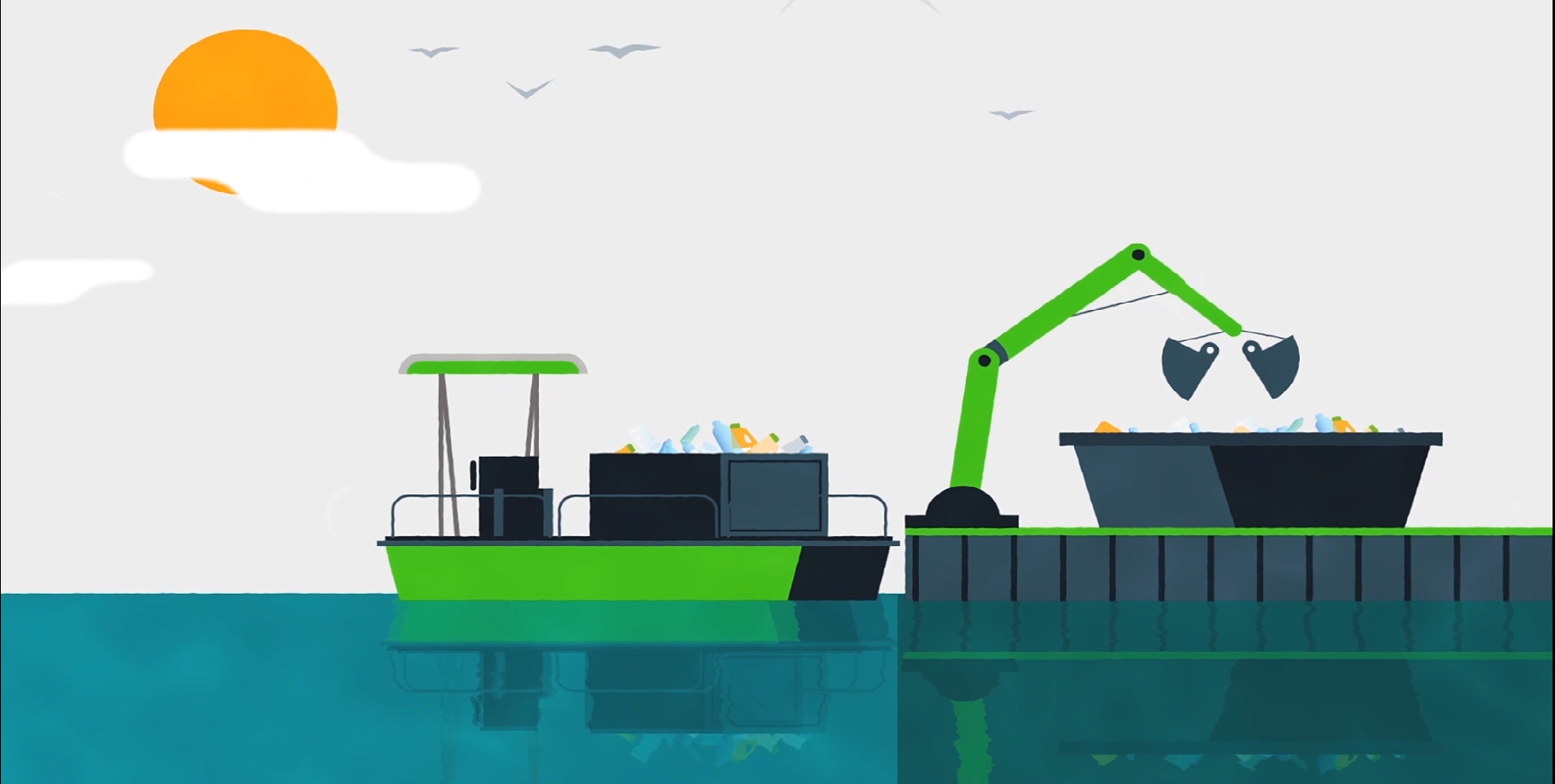DEME Environmental Contractors (DEC), the environmental specialists of DEME, is installing a plastic collector on the river Scheldt on behalf of the Vlaamse Waterweg (the Flemish authority responsible for waterways in Flanders). A combination of a fixed and mobile installation will be tested for a year to collect waste from the water.

To tackle the increasing problem of river pollution, the Vlaamse Waterweg is joining forces with the business world to test the concept of waste collectors on the river Scheldt. After a call from the Vlaamse Waterweg to companies to submit an innovative proposal, DEME proposed a project for collecting waste by the Temse-Bornem Scheldt bridges. The DEME test set-up consists of a fixed installation that passively collects floating and suspended waste from the water and a mobile system that actively collects bigger pieces of waste.
The test phase, that will start in February 2020, is being carried out in cooperation with the University of Antwerp and the Institute for Nature and Forestry Management (Instituut voor Natuur- en Bosbeheer).
Artificial intelligence, autonomous navigation and virtual reality
The mobile installation consists of a smart detection system, a work boat that can navigate autonomously and a charging point. Floating waste is detected using artificial intelligence by smart cameras that are installed on the old Temse bridge. An autonomously navigating work boat, the “Marine Litter Hunter” intercepts waste and pushes it to a collection pontoon. The waste is collected in the collection pontoon, where a crane equipped with a grab transfers the waste into a container.
The fixed crane is operated remotely by an operator using virtual reality and 3D vision technology. When the container is full, the work boat takes this autonomously to the docking station, where it is unloaded by a transfer crane on the quay. The “Marine Litter Hunter” is fully CO2-neutral and moors autonomously at the docking station to charge.
Fixed installation downstream of the Temse bridge
In addition to the mobile plastic collector, DEME will also test a fixed installation to collect floating and suspended waste. The installation will consist of a V-shaped fyke with a collection pontoon.
Dirk Poppe, Managing Director of DEC says: “In the course of our global activities we are confronted daily with waste in rivers and oceans. During dredging works, for example, we come across large quantities of plastic. For DEME’s environmental subsidiary DEC, that specialises among other things in soil, sludge and water remediation, it is a logical step to use our expertise to cooperate actively on solutions for the global waste problem. By collecting plastic in rivers we can avoid it landing up in our seas and oceans, where it is more difficult to tackle the problem. As a pioneering company we continue to commit to technologies and innovations that offer solutions for global challenges. By cooperating with the Vlaamse Waterweg we can thoroughly test the operation of the plastic collector and see whether we can use the technology on a larger scale in rivers, river deltas and ports.”
Source: DEME